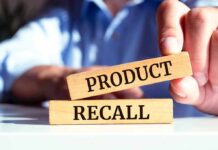When 233 children at a Chinese kindergarten were poisoned by lead-tainted food—because staff added industrial pigment to their meals with the principal’s blessing—the world was reminded just how little accountability exists in systems that treat human lives as expendable for the sake of bureaucratic efficiency.
At a Glance
- Principal, investor, and kitchen staff at Peixin Kindergarten detained for allegedly adding inedible pigment to children’s food, causing widespread lead poisoning.
- Over 90% of students tested showed toxic lead levels; 201 children are now hospitalized for treatment.
- Parents discovered the problem after their children exhibited severe symptoms, but authorities only acted after public outrage grew online.
- This scandal echoes China’s infamous 2008 melamine milk tragedy, reigniting calls for sweeping food safety reform and actual enforcement—not just arrests.
A Toxic Recipe for Disaster: Bureaucracy, Greed, and Broken Trust
The facts are as infuriating as they are absurd: in July 2025, Peixin Kindergarten in Gansu Province, China, served up snacks laced with lead—an element so toxic that in the United States, even a whiff of elevated exposure in a school would trigger a national emergency and lawsuits stretching into the next generation. Yet, in Tianshui, kitchen staff—under orders from the principal and with a nod from the school’s investor—mixed inedible industrial pigment into children’s food, allegedly to make snacks look more appealing. The result? Lead levels in cakes and corn rolls clocked in at more than 2,000 times the national safety limit, and 233 children, along with several teachers, now face the lifelong consequences of this criminal carelessness.
For parents, the nightmare began with stomach aches, vomiting, and blackened teeth. Only after persistent complaints and independent lead tests did the truth emerge—a truth that the authorities, predictably, tried to keep under wraps until public rage online forced their hand. Eight individuals, including the principal and investor, are now behind bars, but the larger question remains: how many more children have to be sacrificed before the bureaucratic machine in Beijing stops treating food safety as a PR problem and starts treating it as a matter of life and death?
Decades of Scandals, Still No Accountability
Let’s not pretend this is a one-off. China’s food safety record reads like a dystopian horror story. Remember the 2008 melamine milk crisis? Thousands of infants poisoned, six dead, and the world shocked by a system where oversight means “cover it up until it gets out of hand.” Sure, regulators tout improvements, but the Gansu lead scandal proves that when enforcement falls apart, it’s always the most vulnerable—children—who pay the price.
The root cause in this case? Pure negligence, enabled by a culture where profit, appearances, and deference to authority trump basic human decency. The pigment used in the food was clearly labeled as inedible, and yet, it was ordered online and deliberately mixed into children’s meals by staff following the principal’s orders. The investor, who holds significant sway over the school’s finances, approved the purchase. And what about the parents? Their voices were ignored until their outrage became too loud to suppress.
Medical and Social Fallout: Who Pays the Price?
Now, 201 children are hospitalized for chelation therapy—a medical response to lead poisoning that is painful, risky, and carries no guarantee of reversing the damage. Long-term, these kids face the risk of cognitive impairment, developmental delays, and chronic health issues. The psychological trauma for families is hard to quantify, but easy to imagine. The school’s reputation is in ruins, and the education sector faces a credibility crisis that no amount of state media spin can fix.
What’s even more galling is the pattern: every time a scandal erupts, the Chinese government rounds up a few scapegoats, makes a show of “justice,” and then quietly reverts to business as usual. Parents, already skeptical of official test results, want more than arrests—they want real reform. But if history is any guide, the odds of genuine transparency and accountability are slim. Why? Because systemic reform threatens the power and profit of those in charge, and in these top-down regimes, that’s the one thing truly untouchable.
Broader Lessons for the West: Why Vigilance Matters
Americans look at this tragedy and rightfully shake their heads, maybe even comforted by the idea that “it can’t happen here.” But the lesson is sobering: when government power grows unchecked, when bureaucrats override parental rights, and when the drive for efficiency tramples individual accountability, disaster follows. In the United States, our constitutional checks and balances, local control, and transparency are what keep such horrors at bay. But with every push for centralized control, every erosion of parental authority, and every excuse for government overreach, we risk drifting toward the same nightmare.
Let this scandal serve as a warning—not just about China’s food safety failures, but about what happens when institutions forget whom they’re supposed to serve. If we let our own standards slip, if we indulge the fantasy that “big government knows best,” we’re no better than the bureaucrats who poisoned an entire kindergarten for the sake of convenience and image.











